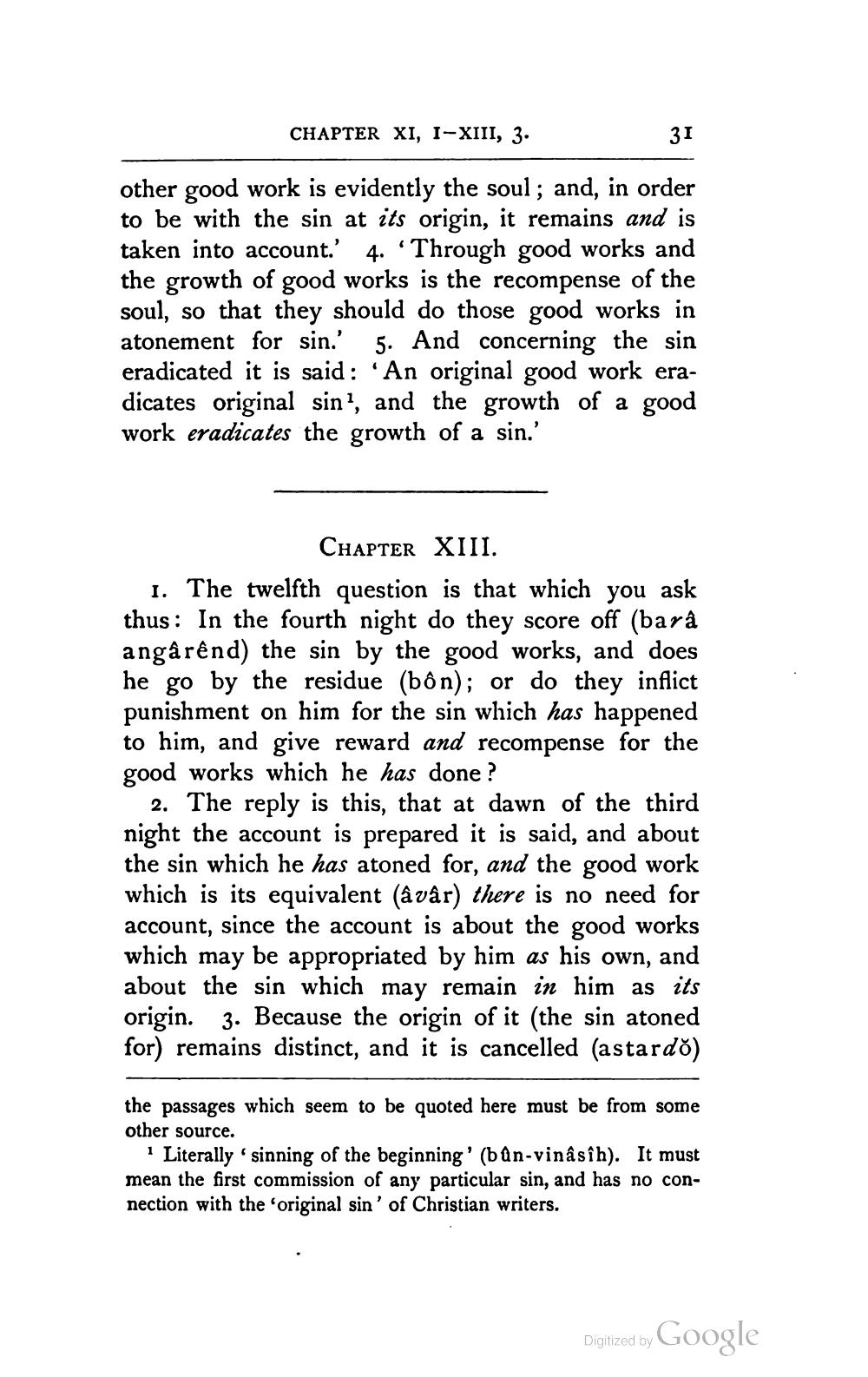________________
CHAPTER XI, I-XIII, 3.
31
other good work is evidently the soul; and, in order to be with the sin at its origin, it remains and is taken into account.' 4. 'Through good works and the growth of good works is the recompense of the soul, so that they should do those good works in atonement for sin.' 5. And concerning the sin eradicated it is said: 'An original good work eradicates original sin1, and the growth of a good work eradicates the growth of a sin.'
CHAPTER XIII.
1. The twelfth question is that which you ask thus: In the fourth night do they score off (barâ angârênd) the sin by the good works, and does he go by the residue (bôn); or do they inflict punishment on him for the sin which has happened to him, and give reward and recompense for the good works which he has done?
2. The reply is this, that at dawn of the third night the account is prepared it is said, and about the sin which he has atoned for, and the good work which is its equivalent (âvâr) there is no need for account, since the account is about the good works which may be appropriated by him as his own, and about the sin which may remain in him as its origin. 3. Because the origin of it (the sin atoned for) remains distinct, and it is cancelled (astardŏ)
the passages which seem to be quoted here must be from some other source.
1 Literally' sinning of the beginning' (bûn-vinâsîh). It must mean the first commission of any particular sin, and has no connection with the 'original sin' of Christian writers.
Digitized by
Google




